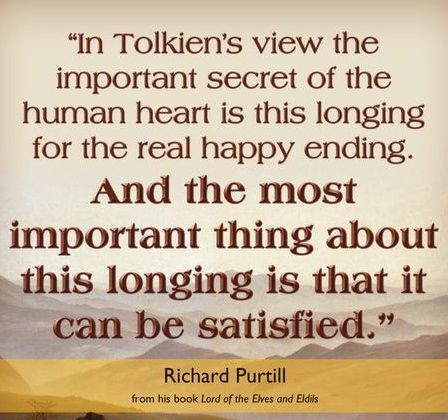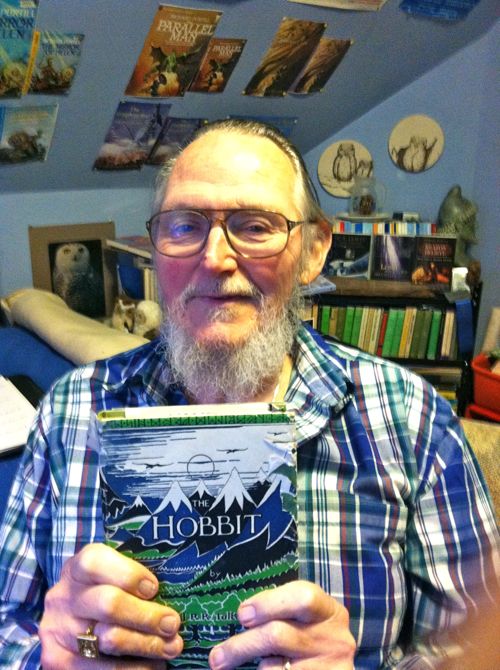Fantasy and Philosophy for the New Millenium
please Visit his new site at richardpurtill.com
| Welcome
to Richard Purtill's Official
Home Page Fantasy and Philosophy for the New Millenium please Visit his new site at richardpurtill.com |
 |
 |
|
J.R.R. Tolkien and C.S. Lewis Site Launched Ignatius Press launched a new
website, TolkienLewisBooks.com,
in December 2012, to coincide with the release of The Hobbit in theaters. A poster
for the site featured a quote from Purtill's book, Lord of the Elves and Eldils. Three
of his books are available on the site, along with book samples and an
interview with the author.
|
|
Parallel Worlds of Richard Purtill: SF and fantasy stories "An excellent sampling of Professor Purtill's fiction" "Some of the stories are science fiction, some are fantasy, some combine elements of both. Regardless, all are delightful." -David Loeff.
|
Now in paperback and Kindle editions  |
Reason to Believe: Why Faith Makes Sense A
very carefully and
thoughtfully crafted apologetic. Each page has been touched by the
spirit and wisdom of C. S. Lewis. This is a worthwhile read by both
believers and skeptics.
-Carl
Olson, author of The DaVinci Hoax.-BarnesandNoble.com
Reason to Believe is a clearly-written, philosophically-rooted work that will help readers better understand and appreciate the rational nature of Christian faith, and help them to respond to questions and challenges from skeptics. Highly recommended! Richard
Purtill writes with
a lucidity reminiscent of Frank Sheed. As Sheed walked the common man
through theology, so Purtill guides us through a philosophical
reasoning of faith.
-Joseph
Tremblay, The
Permanent Things
in a Bookcase.'Sound
atheists cannot be
too careful of their reading', remarked C.S. Lewis. Reason to Believe gives reason to
believe that Lewis was
right. With Lewis-like lucidity, Purtill demolishes the case for
atheism systematically, and makes the case for Christianity with the
logic of the true philosopher. Christians will find their faith
illuminated with the flair of a truly great thinker and communicator of
ideas. Atheists will read this book at their peril."
-Joseph
Pearce, author of The Quest for
Shakespeare. |
From Philosophy to Fantasy: Bellingham Philosophy Professor Turns Sci-fi Writer Interview by Michelle Nolan Reprinted courtesy of the BELLINGHAM HERALD, Bellingham, WA 24 October, 2008. Bellingham
fantasy novelist Richard Purtill's eyes lit up when he was handed what
amounted to a pulp paper "time machine."
When a visitor showed him a 1943 copy of Startling Stories, he was 12 years old again for a few moments. "That's it, the very first science fiction story I ever read," he said with a grin. "'Pirates of the Time Trail.'" The 77-year-old author began reading science fiction as a boy in Chicago, but he didn't start writing fantasy until he was nearly 50. That was in the middle of a 34-year career as philosophy professor at Western Washington University, where he retired in 1996. He's making up for lost time, still writing novels. He's working on his 10th, fittingly entitled The Philosopher's Stone. His most recent novel, Letters to Nausicaa, appeared earlier this year. Question: Tell me about your writing career. Answer: I started by writing textbooks, with my first appearing in 1971. My first novel, The Golden Gryphon Feather, was published in 1979 as a paperback original in the long-running DAW science-fiction series. I've also written three books about Tolkien and C.S. Lewis. I think I've done 10 textbooks and nine novels, making it 22 books in all. I've also published a few short stories. Q: Is it true that you don't type? A: I just never learned to type in high school. If I had known I would become an author, I would have taken typing. I've always been able to get help from people who can read my handwriting. I still write my novels that way - by hand. Q: Why are your stories so influenced by Greek culture? A: I've made 28 trips to Greece. I've just been fascinated by all things Greek. In my novels, the Greek gods really exist. Q: In your novel Murdercon (1982), about murder at a science-fiction convention, the protagonist is a female version of yourself, right? A: I've always been able to write from both the male and female points of view in my novels. My stories are about one-half archaeology and one-half fantasy. Q: Since science-fiction was a relatively unrespected branch of fiction when you started reading it, how did you get involved? A: My dad brought home that issue of Startling Stories because he thought I would like it. I couldn't afford the 15-cent or 25-cent prices, so from that point on I haunted the used-book stores in Chicago for science fiction magazines. I could get them for a nickel apiece. Q: How did you get into teaching philosophy? A: I'm interested in logic, ethics and metaphysics, really pretty much all aspects of philosophy. I would always be willing to teach courses that no one else wanted to. Q: Where were you educated? A: I obtained my bachelor's, master's and doctorate from the University of Chicago. I also spent a lot of time studying at UCLA. It was while I was there that I saw an ad for professors placed by James Jarret, who was then president of WWU. I came to Bellingham to teach in 1962, and I had never seen the town. But I've loved it ever since. copyright
2008, Michelle
Nolan,
reprinted
by permission.
The Two Lives of Richard Purtill For
years Dr. Richard
Purtill lived two lives: by day, professor of philosophy. By night,
writer of pulp fiction. By day he authored textbooks; by night he spun
out fantasy and science fiction pocket paperbacks. Weekdays he lectured
in classrooms; weekends he was feted at fantasy conventions. When he
retired from his day job, he plunged all the more into his nighttime
pursuit, eventually publishing more than twenty books.
The prolific professor is probably best known for his bestsellers published by Ignatius Press: J.R.R. Tolkien: Myth, Morality and Religion; C.S. Lewis’ Case for the Christian Faith, and Lord of the Elves and Eldils: Fantasy and Philosophy in C.S. Lewis and J.R.R. Tolkien. After receiving his doctorate from the University of Chicago, he pursued his love of writing and teaching as Professor of Philosophy at Western Washington University, Bellingham, Washington. By day he taught a standing room only class called "Philosophy and Fantasy", in which students read and examined books by popular fantasy and science fiction writers including Lewis, Tolkien, Charles Williams, Ursula LeGuinn, Robert Heinlein, Madeline L’Engle and others. He reworked the class notes into his books on C.S. Lewis and J.R.R.Tolkien. He had this in common with Lewis and Tolkien: professor by day, by night turning out fantasy fiction. Like them also, his authorship ranged widely, from philosophic tomes to murder mysteries: Murdercon (Doubleday Press); science fiction: The Parallel Man (reprinted in Parallel Worlds of Richard Purtill, forthcoming in 2009), fantasy fiction: The Kaphtu Trilogy and Lost Tales of Kaphtu. From apologetics: Reason to Believe (forthcoming in 2009 from Ignatius Press) to textbooks in philosophy, ethics and religion. From entries in the Cambridge Dictionary of Philosophy and the C.S. Lewis Readers’ Encyclopaedia to short stories in Alfred Hitchcock’s Mystery Magazine, Isaac Asimov’s Science Fiction Magazine, Marilyn Zimmer Bradley’s Fantasy Magazine, and The Year's Best Science Fiction. By day he led the university’s summer sessions in Greece; by night he was feted as guest of honor at San Diego’s Mythcon and other fantasy and science fiction conventions. Copyright 2005, 2013
Gord Wilson.
reprinted by permission. link to the Ignatius Insight article.
C.S. Lewis' Case for Christianity An
Interview with Richard Purtill
by Gord Wilson
Q: Your books on J.R.R. Tolkien and C.S. Lewis are both bestsellers for Ignatius Press. What attracted you, as a philosopher, to study these authors’ ideas? A: I read a lot of C.S. Lewis’ nonfiction and apologetics before I read his well-known fantasies, The Chronicles of Narnia. Somewhere along the line I read his science fiction trilogy. Q: You referred to "apologetics." What does that mean? A: C.S. Lewis has been called "the apostle to the skeptics." He’s probably the best apologist of the twentieth century. He’s a key figure in apologetics, which means, showing people the rational basis for Christianity, and that you don’t need to simply say, "it’s just a matter of faith." Q: Why do you think Lewis and Tolkien are so widely read? A: Tolkien is largely read due to his fiction, of course. I think things he’s written in his letters and in a short essay called "On Fairy stories," which is in The Tolkien Reader, are quite insightful about the way fantasy fiction is written. Q: Tolkien was a Catholic, and a close friend of Lewis, and influential in Lewis’ conversion from an atheist. Why do you think C.S. Lewis did not become Catholic? A: That’s a good question. Joseph Pierce has written a book about it, C.S. Lewis and the Catholic Church. I suspect partly it was due to his upbringing in Northern Ireland. One of his friends said he had a "skunner," that is, a prejudice against the Catholics. He never quite overcame that. But his brother, Warnie, who had a drinking problem, often stayed with Roman Catholic nuns in Ireland. Somebody gave a metaphor that Lewis was like a church bell: he calls people into the Church, but he stays outside. It may be that his staying outside enabled him to reach more people who eventually came into the Church. Many of his friends and students did eventually come into the Church. Q: Do you think he may be read with profit by Catholics today? A: Oh yes. If you didn’t know he was Church of England, you probably would just assume he was Catholic. Q: If someone wanted to encounter C.S. Lewis today, where should they begin? A: It depends on whether one wants to start with the logical side of his nonfiction or the imaginative side of his fantasies and science fiction. For the first, Mere Christianity would be a good introduction. For the second, the space trilogy: Out of the Silent Planet, Perelandra, and That Hideous Strength would be a good place to start. Q: What approach do you take in your book, C.S. Lewis’ Case for the Christian Faith? A: That book is almost entirely about his apologetics, although a couple of times I mention his fiction. He made a case for the Christian faith which could be answered and argued. What I try to do is draw together the various things he said in various places and give a coherent picture from his various writings. Q: C.S. Lewis wrote across an unusually wide spectrum: from fantasy and science fiction to philosophy and poetry. You also have written widely. A: If you have a certain type of mind, which I admire in Lewis, and maybe share to a small extent, you have both an imaginative side and a logical side. I’ve written everything from fantasy novels to textbooks on logic. Lewis had both the logical side and the imaginative side. They don’t conflict; they support each other. By using his imagination, he came up with marvelous metaphors that really add to his nonfiction writing. Gord Wilson holds an M.A. in English from Western Washington University, where Dr. Purtill was his philosophy professor. He has written for Campus Life, His, CCM, The New Oxford Review, HM, and various animation magazines and local publications. copyright 2005-2014, by Gord Wilson reprinted by permission |
Letter to Nausicaa: Book Three
|
| See Richard Purtill books in the
Living Dog Store |
doghouse |